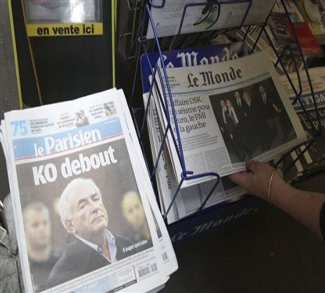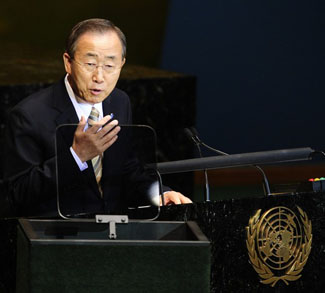The arrest and subsequent resignation of former IMF chief Dominique Strauss-Kahn won’t just impact the Euro sovereign debt crisis, but the wider international monetary order as well.
Dominique Strauss-Kahn’s career, Eurozone bailouts, and the post-war regulatory order; all three have changed in the blink of an eye. And while the truth of allegations facing Strauss-Kahn may matter in regards to the possibility of a political future in France, they won’t be influencing the future direction of the IMF, as the global discussion has already chugged along to the question of who will replace Strauss-Kahn as the organization’s head.
The timing of Strauss-Kahn’s fall from grace is not ideal. His stewardship of the organization was widely praised and his absence will surely impact the course of the European sovereign debt crisis, at least over the short term. Most importantly, Strauss-Kahn was known as someone who favoured extending a second bail-out package to Greece; a state that is beset with yet another looming insolvency crisis. He was also someone who had the connections and the personal gravitas to get things done. He could make private assurances to sceptical partners and was a large part of the reason why the IMF has taken such a proactive role in dealing with the Euro sovereign debt crisis. His removal will chip away at any hard-earned investor confidence that has been regained in the wake of the first Greek bailout deal.
To give an impression on how his arrest complicates matters: This week he was scheduled to meet with European finance ministers in Brussels to finalize a $111 billion bailout package for Portugal and agree on a new aid-for-austerity package for Greece. After that, he was to fly to Germany to lobby Chancellor Merkel for a new bailout package for Athens. Obviously, his arrest throws a wrench into gears that were busily resolving Europe’s crisis (or at the very least buying it some more time). The resulting uncertainty will likely cause the Euro to slide and put more upward pressure on bond yields in debt-compromised countries.
Perhaps owing to just how critical this juncture is for the European sovereign debt crisis, the race to replace Strauss-Kahn has gone from cold to red-hot in a remarkably short period of time. As the list of countries putting a candidate forward grows longer and longer, it warrants mention that this succession should be observed with two important factors in mind. First, the fact that time is of the essence and a European candidate would be ideal in the eyes of European leaders worried about their own regional debt crisis. Second, this succession could mark the end of a post-war deal that always had a European heading up the IMF and an American at the helm of the World Bank. Leaders in the developing world have been clamouring for more representation at these once-ostensibly and increasingly-genuine ‘global’ institutions. That a leader from the developing world will head up the IMF is a certainty, it’s just a question of whether or not it’s going to be this time or somewhere further down the road.
While it can certainly go either way, it’s more likely that we will get at least one more European heading up the IMF, and that person will likely end up being the current French Finance Minister Christine Lagarde. The impending menace of Greek debt restructuring and the suddenness of Strauss-Kahn’s fall from grace make it so countries like China would rather see another European chief than a hastily-appointed competitor from the developing world; a Brazilian or an Indian for example.
What is clear however is that whoever Strauss-Kahn’s successor is, they will have their hands full with rescuing the Euro zone from fiscal rot and growing scepticism as well as ensuring that the IMF continues its transition from the West’s post-war financial tool to a truly global financial institution.




